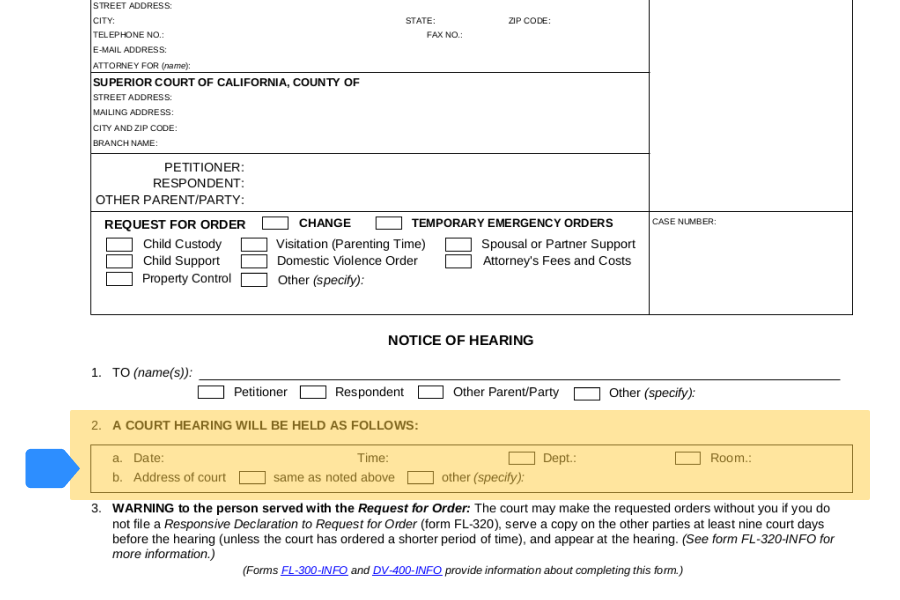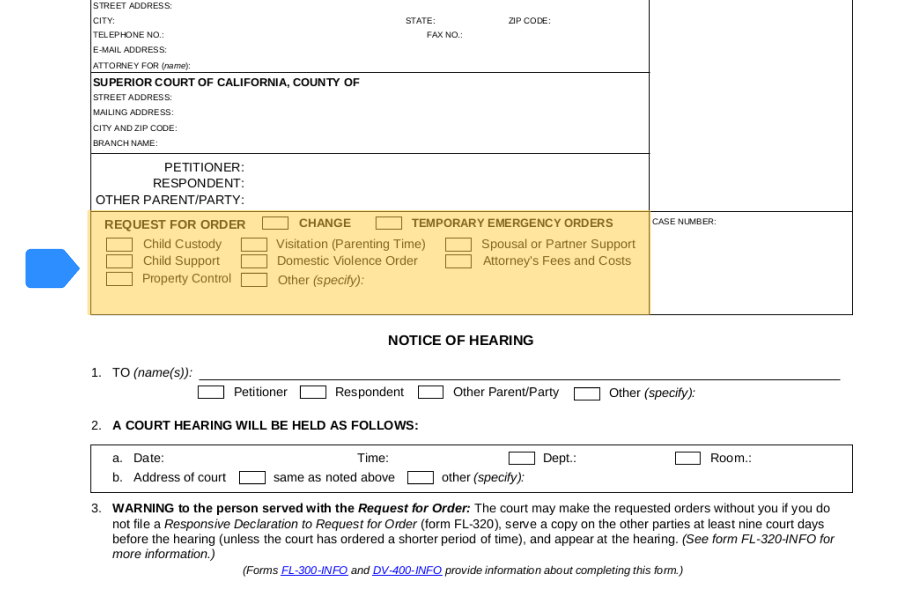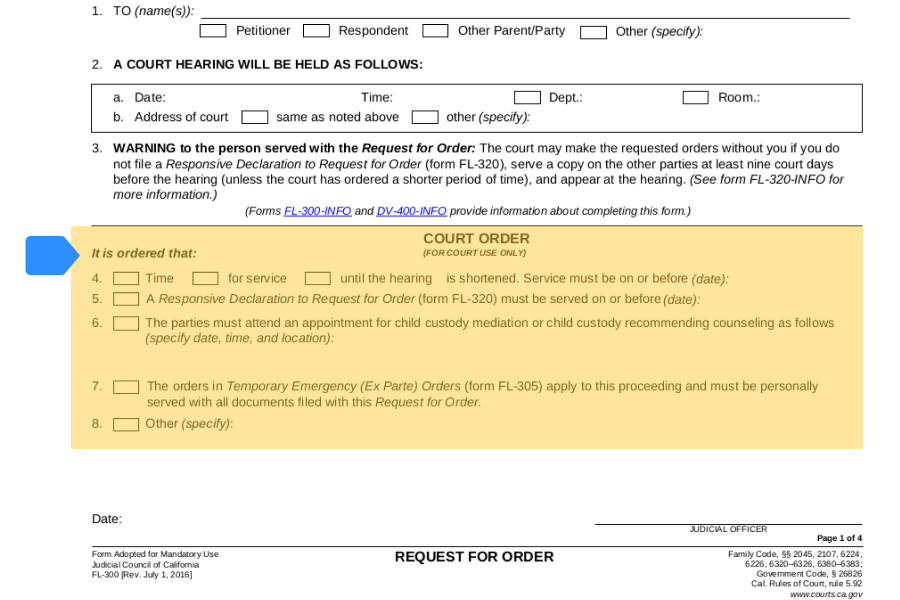
Brow Description
Form FL-300
The other party in your family law case is asking the court to make a decision. The court set a date to hear from both sides (a "hearing") before it makes a decision.
 Page 2
Page 2
Hearing Date and Time
The date, time, and place is on the first page.
 Page 2
Page 2
What the Other Party is Asking the Court to Decide
The topic of the request is checked on the first page. Exactly what the person wants the Court to decide and why are on Pages 2-4 and any attachments.
If "Change" is checked it means that there's already an order about this issue and the other party wants that changed.
If "Temporary emergency orders" is checked it means the other party asked the court to decide something urgent before the hearing. If the Court agreed, item 7 at the bottom of Page 1 will be checked and the orders will be attached. These orders are temporary. They only last until the hearing. You must follow these orders.

Orders Made Before the Hearing
Sometimes the Court makes orders about what one or both sides must do before the hearing. For example, if the hearing is about child custody and visitation, the Court may order you to attend mediation. You must follow any orders listed.
What you can do
No matter what you decide to do, right now you need to:
- follow any orders in or attached to the Request for Order
- go to mediation, if ordered in item 6 on Page 1
You have options to respond. If you don't respond, the Court will decide without your input.
There's generally no cost to respond. If this is the first time you are filing papers in the case, there may be a fee. If you can't afford the fee, you can ask for a fee waiver.
Unless there is a restraining order, contact the other side to see if you can agree. If you do, you can submit a signed written agreement to the Court and request to cancel the hearing.
At the hearing, the Court will only make decisions about the issues listed in the Request for Order (FL-300). If you want the Court to decide about something else, you must file your own Request for Order (Fl-300).
Additional Fields
Check your document to see if the following fields were selected and if so find out about each of those sections.
Congress shall make no law respecting an establishment of religion, or prohibiting the free exercise thereof; or abridging the freedom of speech, or of the press; or the right of the people peaceably to assemble, and to petition the Government for a redress of grievances.
A well regulated Militia, being necessary to the security of a free State, the right of the people to keep and bear Arms, shall not be infringed.
- This is a list item
- Another list item
No Soldier shall, in time of peace be quartered in any house, without the consent of the Owner, nor in time of war, but in a manner to be prescribed by law.
The right of the people to be secure in their persons, houses, papers, and effects, against unreasonable searches and seizures, shall not be violated, and no Warrants shall issue, but upon probable cause, supported by Oath or affirmation, and particularly describing the place to be searched, and the persons or things to be seized.
No person shall be held to answer for a capital, or otherwise infamous crime, unless on a presentment or indictment of a Grand Jury, except in cases arising in the land or naval forces, or in the Militia, when in actual service in time of War or public danger; nor shall any person be subject for the same offence to be twice put in jeopardy of life or limb; nor shall be compelled in any criminal case to be a witness against himself, nor be deprived of life, liberty, or property, without due process of law; nor shall private property be taken for public use, without just compensation.
